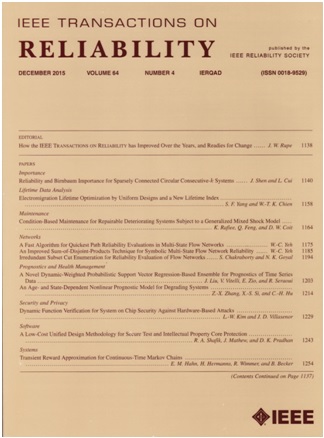RobFace: A Test Suite for Efficient Robustness Evaluation of Face Recognition Systems
IF 5.7
2区 计算机科学
Q1 COMPUTER SCIENCE, HARDWARE & ARCHITECTURE
引用次数: 0
Abstract
Face recognition is a widely used authentication technology in practice, where robustness is required. It is thus essential to have an efficient and easy-to-use method for evaluating the robustness of (possibly third-party) trained face recognition systems. Existing approaches to evaluating the robustness of face recognition systems are either based on empirical evaluation (e.g., measuring attacking success rate using state-of-the-art attacking methods) or formal analysis (e.g., measuring the Lipschitz constant). While the former demands significant user efforts and expertise, the latter is extremely time-consuming. In pursuit of a comprehensive, efficient, easy-to-use, and scalable estimation of the robustness of face recognition systems, we take an old-school alternative approach and introduceRobFace:一个有效的人脸识别系统鲁棒性评估测试套件
人脸识别是一种应用广泛的认证技术,对鲁棒性要求很高。因此,必须有一种有效且易于使用的方法来评估(可能是第三方)训练的人脸识别系统的鲁棒性。现有的评估人脸识别系统鲁棒性的方法要么基于经验评估(例如,使用最先进的攻击方法测量攻击成功率),要么基于形式分析(例如,测量Lipschitz常数)。前者需要大量的用户努力和专业知识,而后者则非常耗时。为了对人脸识别系统的鲁棒性进行全面、高效、易于使用和可扩展的估计,我们采用了一种老派的替代方法,并引入了RobFace,即使用优化的测试套件进行评估。它包含可转移的对抗人脸图像,旨在全面评估人脸识别系统在各种维度上的鲁棒性。RobFace是系统不可知的,并且仍然与系统特定的经验评估或形式分析一致。我们通过对多个人脸识别系统进行各种扰动的广泛实验结果来支持这一说法。据我们所知,RobFace是第一个与系统无关的健壮性评估测试套件。
本文章由计算机程序翻译,如有差异,请以英文原文为准。
求助全文
约1分钟内获得全文
求助全文
来源期刊

IEEE Transactions on Reliability
工程技术-工程:电子与电气
CiteScore
12.20
自引率
8.50%
发文量
153
审稿时长
7.5 months
期刊介绍:
IEEE Transactions on Reliability is a refereed journal for the reliability and allied disciplines including, but not limited to, maintainability, physics of failure, life testing, prognostics, design and manufacture for reliability, reliability for systems of systems, network availability, mission success, warranty, safety, and various measures of effectiveness. Topics eligible for publication range from hardware to software, from materials to systems, from consumer and industrial devices to manufacturing plants, from individual items to networks, from techniques for making things better to ways of predicting and measuring behavior in the field. As an engineering subject that supports new and existing technologies, we constantly expand into new areas of the assurance sciences.
 求助内容:
求助内容: 应助结果提醒方式:
应助结果提醒方式:


